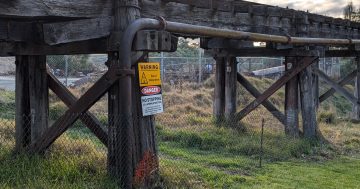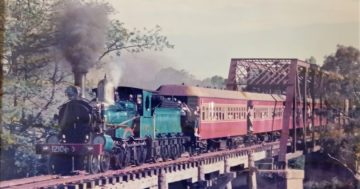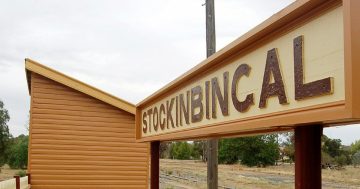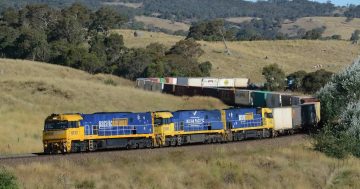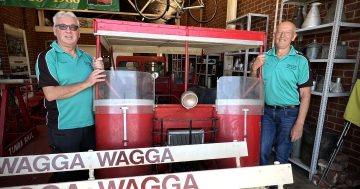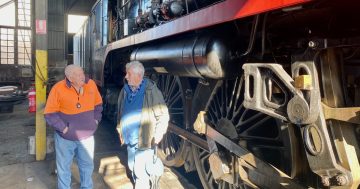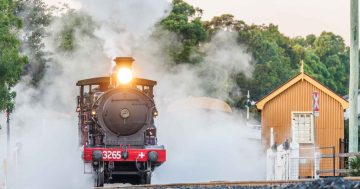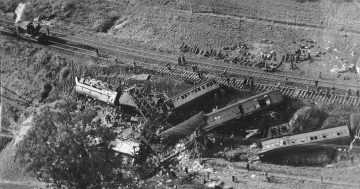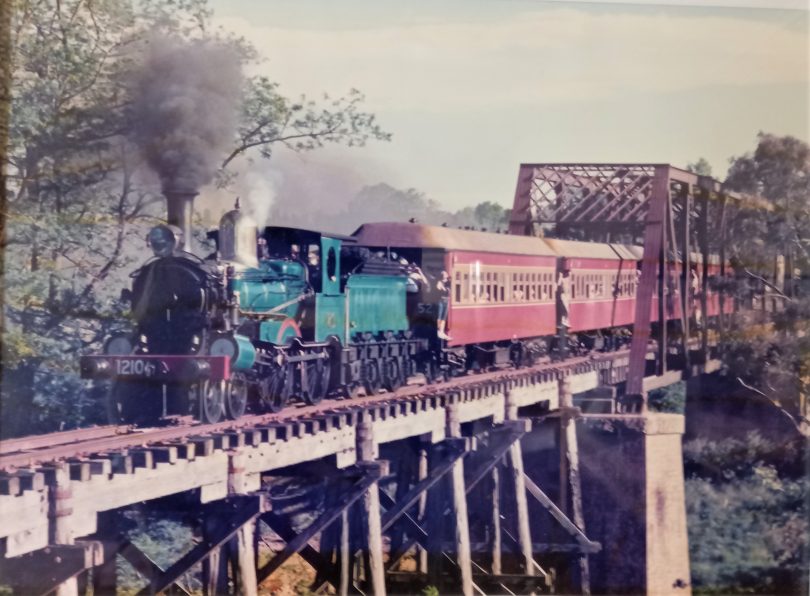
The last train into Yass Town 1988, crossing the Yass River bridge. Photo: Yass Railway Museum.
The Yass Railway Museum and its team of volunteers are dedicated to telling the story of the hardy little steam engines that could and did, for many years, connect Yass township with the main southern line.
The bustling town of Yass was frustrated to discover in the 1870s that the railway line to be built between Sydney and Melbourne was going to bypass the town by five kilometres. Railways were the lifeblood of the community for passengers and getting produce to and from the market when roads were so often impassable and slow.
The answer was Yass Town Station and a connecting tramway which opened on Wednesday April 20, 1892.
The busy Yass Town Station was manned around the clock to ensure all trains on the southern line were met by the 1301 class steam engine hauling its passenger and freight cars.
District produce such as wool, wheat and fruit from the orchards could now get to market swiftly and in good condition.
In return much-needed supplies, equipment and goods reliably arrived to stock the busy Cooma Street businesses and district farms.
Travellers could avoid the tiresome journey by horse-drawn coach to Yass Junction on the main line by simply stepping into the tramway carriage right in the centre of town.
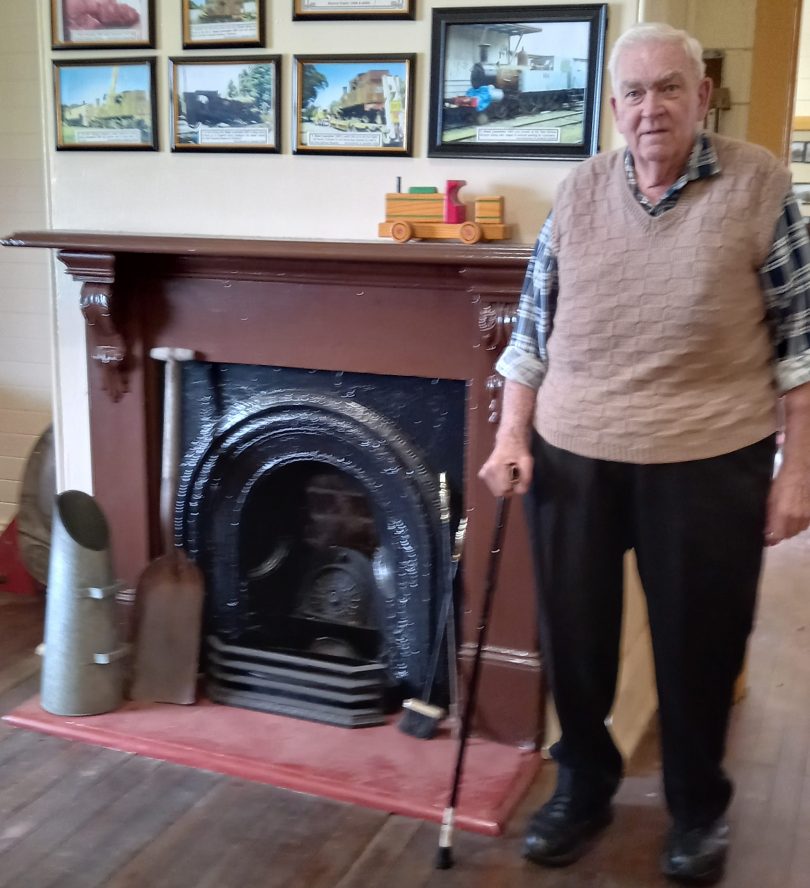
Bob Frank in the ladies waiting room at the museum. Photo: Judith Davidson.
The Yass Railway Museum offers a complete experience of the age when rail was king.
Volunteer Bob Frank is happy to share his encyclopaedic knowledge of the Yass Town Station buildings, sheds, freight cars and freight sidings, shunting engine, guard’s vans, unusual ground-level platform with classic cast iron mouldings around the veranda posts and wooden ramps so ladies didn’t have to show their ankles climbing into the train.
There is a crane, and a beautifully restored 1307 steam engine all looking perfectly at home. Line maintenance trikes said to “go like the clappers” now stand idle.
In front of the platform, there are four pairs of rail lines with points. It takes little imagination to see how the steam engine and cars manoeuvred on these lines to enable trains in and out of the station on their busy schedule.
Sadly, the line closed to passengers in 1959 and to freight in 1988. Residents in Dutton Street no longer had to endure the noise and vibrations of trains passing regularly up and down the very centre of their street, but the lines are still there.
So too is the magnificent iron railway bridge at the end of Dutton Street spanning the Yass River.
The wooden approaches are unsafe and the whole thing is closed to the public but it makes for an impressive sight.
The line is still visible on its way out of town and on to Yass Junction – much overgrown but still there. At Yass Junction, the siding where this game little train pulled up for passengers is still apparent.
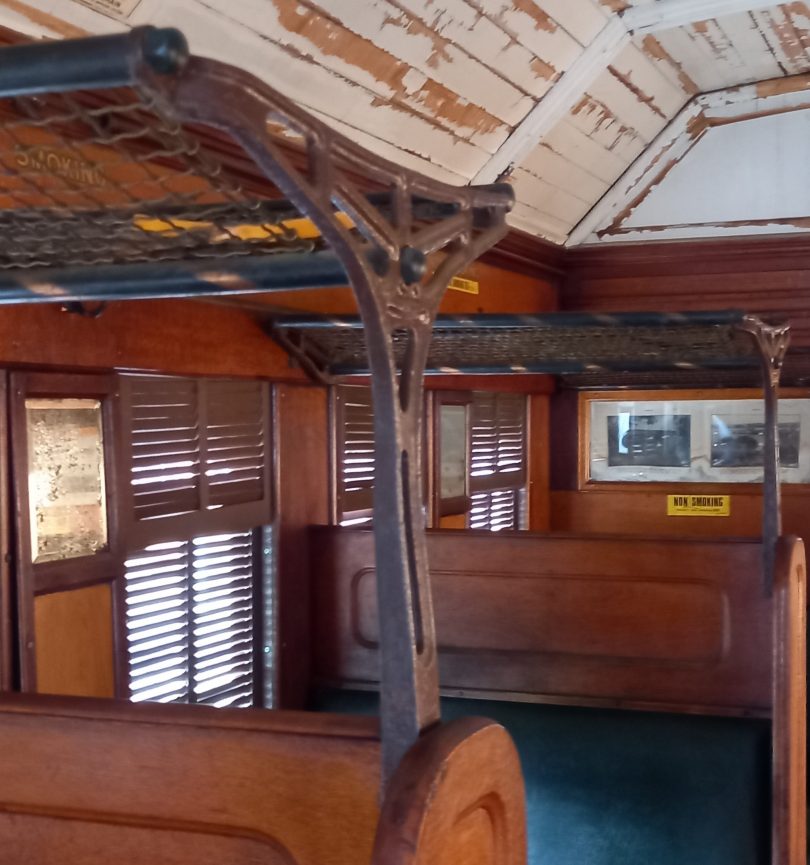
A passenger car awaiting restoration at the Yass Railway Museum. Photo: Judith Davidson.
The volunteers manning the museum – open each Sunday from 10 am to 4 pm – love to tell stories of the station’s heydays.
There are stories of milk churns and groceries delivered to the goods shed and you can see the truck height platform where local businesses picked up their freight right through until 1988.
The fifth line, which has now been pulled up, used to be the siding where the rail dental van was stationed for a week to provide a town dental service pre-1950s or a travelling exhibition in a specially decked out carriage was parked.
Huge transformers arrived by rail to be hauled by truck to the Electricity Commission works just out of town.
One line ran on past the station and across to Crago’s Mill still standing next to Aldi – grain came in and flour went out.
Later in the Depression of the 1930s, an ice and rabbit freezing works established in the old mill would load rabbit carcases into ice-cooled rail vans headed for the Sydney market.
Parked next to the wool bale loading siding is the special van dedicated to transporting Arnott’s biscuits around NSW, and the petrol tanker car which distributed fuel to local service stations.
For the young and young at heart, a model train set lovingly built by local John Harmer and donated to the museum is housed in the old fuel room where platform and signal lamps were once filled.
Volunteer Ron Barton chuckled, “I have seen kids not wanting to leave the train set dragged away screaming by embarrassed parents”.
Judith Davidson is a local historian, uncovering the stories of the Yass Shire.
Original Article published by Judith Davidson on Riotact.







